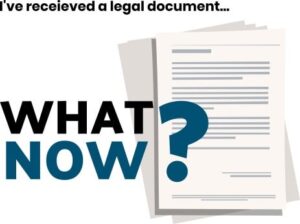What is an agreement?
An agreement, also known as a contract, is an understanding or arrangement between two or more parties. The fundamental requirement for any contract is that the parties have reached an agreement for one party to do, or not do something, in return for something of value from the other party. This “something of value” in legal terms this is called “consideration” and is sometimes referred to as “quid pro quo” (something for something).
Once the contract has been agreed on (whether verbally or in writing) by all parties, the agreement becomes legally binding. This means if a party fails to perform their obligations under the agreement, they will be in breach of contract.
What is a deed?
A deed of agreement is a binding promise to do something. In commercial terms, the signing of a deed indicates a serious commitment by the person or company executing it to perform certain duties and obligations.
A deed can:
- pass legal interest in property or other rights;
- pass equitable interest in property or other rights;
- create a binding obligation on a person; and
- affirm an agreement that passes legal or equitable interest in property or other rights.
Deeds of agreement can be used for many commercial arrangements or contexts. For example, in an insolvency context, a deed of company arrangement is an instrument that prescribes the conduct of the affairs of a company under voluntary administration. Once the company’s obligations under the deed have been discharged, unfettered control of the company reverts to the company’s directors.
Common types of deeds
The following documents are common types of deeds:
- deed of termination
- deed poll
- deed of indemnity
- deed of forbearance
- deed of settlement
- deed of confidentiality
- deed of guarantee
- deed of novation
- deed of escrow
- deed of release
A deed is often used because of the potential issues that may arise if there is no “consideration” provided for an undertaking. A deed is generally considered to be more difficult to “get out of” than an agreement, and there is a longer limitation period to sue on a deed (12 years compared to six years from the date of the cause of action arising).
How are deeds validly created?
Enforceable deeds can be created and executed according to legislation, specifically the Property Law Act 1974 (Qld) and the Corporations Act 2001 (Cth); or at common law.
Legislation
An enforceable deed is usually created through legislation.
Section 45 of the Property Law Act 1974 (Qld) states that an individual may execute a document as a deed by:
- signing the document;
- expressing the document to be an “indenture” (legal agreement), or “deed”, or “be sealed”;
- having the document signed and attested by at least one witness who is a not a party to the document.
Section 127(3) of the Corporations Act 2001 (Cth) provides that a company may execute a document as a deed by:
- expressing the document to be “executed as a deed”; and
- having the document signed by two directors, or a director and a company secretary, with or without a common seal.
Common law
For a deed to be validly created and executed at common law, the deed must:
- be written on paper, parchment or vellum;
- have a personal seal;
- be delivered to the other party, or there must be some other indication given that the person executing it intends to be bound by its terms,
Sealing means affixing a seal in the form of a rubber stamp, wax seal or any other impression on the document (Electronic Rentals Pty Ltd v Anderson (1971) 124 CLR 27). This is no longer necessary in Queensland provided the deed is expressed to be sealed and is properly signed and witnessed. Generally, for most Australian states, using the words “signed, sealed and delivered” in the attestation clause at the end of the deed will ensure the deed is enforceable.
Delivery means “… conduct indicating that the person who has executed the deed intends to be bound by it. Anything which shows that he treats the instrument as his deed will suffice … It ‘depends upon intention manifested by some words or by some act, either expressly proved or inferred from circumstances.” (Monarch Petroleum NL v Citco Petroleum Ltd [1986] WAR 310).
Witnessing of a deed when it is being executed is not required at common law.
Other requirements may apply to create an enforceable deed depending on the circumstances of the case, and the jurisdiction.
Deed versus agreement
As mentioned above, agreements and deeds are two very distinct legal instruments, and their incorrect use may have adverse consequences for certain transactions. It is a fundamental principle of modern contract law that in order to have a binding contract, there must be (at least):
- an offer;
- acceptance of the offer;
- an intention to be legally bound; and
- consideration.
For other requirements, see our Elements of a contract page.
The major difference between an agreement and a deed is that there is no requirement for consideration for a deed to be legally binding.1 A party seeking to enforce a promise made in an agreement, whether oral or written, must have provided consideration for the promise.
For example, a third-party guarantor of a loan may be able to argue that they did not receive consideration for guaranteeing the loan, because they never received any benefit of it. If the guarantee is executed as a deed rather than as an agreement, any dispute about lack of consideration can be avoided.
When determining whether a document is a deed or an agreement, the courts will consider whether the person executing the document intended that it be immediately binding on that person. If that was the intention, the court is more likely to find that the document is a deed rather than an agreement.
Should I choose a deed or an agreement?
Deciding whether to use a deed or agreement to formalise legal obligations with another party involves a number of considerations. However, a deed is commonly used:
- where legislation requires it;
- where there may not be consideration for a promise;
- where a longer limitation period to enforce a deed, as opposed to an agreement, may be available, such as in a dispute about property held under a deed of trust; and
- when a party or the parties want to make it more difficult for the other party to “get out” of their obligations.
What remedies can I claim for breach of an agreement?
Breach of an agreement is the same as breach of contract, with a variety of legal remedies available. These remedies include:
Monetary damages
The primary remedy for breach of contract is damages in the form of a sum of money paid as compensation for the aggrieved party’s actual loss resulting from the breach.
Restitution
Restitution is founded on the legal principle of unjust enrichment which allows one party to recover a sum of money from another if money had been incorrectly paid, or where a party is otherwise unjustly enriched at the expense of another.2
Rescission
Rescission is an equitable remedy that allows a party to a contract to cancel or “rescind” the contract. Rescission effectively means setting aside the contract. Rescission may be used if the aggrieved party is the victim of vitiating factors, e.g. misrepresentation, mistake, duress, or undue influence.
Rectification
Rectification is an equitable remedy that allows the parties to re-write a part of the contract so that it reflects the parties’ original intentions more closely.
Specific performance is an equitable remedy which allows the court to require a party to perform a specific act such as, for example, complete performance of a contract.3
What remedies can I claim for breach of a deed?
Breach of a deed attracts similar remedies to breach of an agreement, with the most common specific performance, or damages for breach where specific performance is either not practical or no longer available. Taking court action to enforce such remedies for breach of a deed is slightly less complicated than court action related to breach of an agreement because it is not necessary to prove consideration was given.
Frequently asked questions
What are the key differences between deeds and agreements?
The main feature that differentiates a deed and an agreement is that deeds do not require consideration to be binding, while agreements do. Another key difference is that agreements can be enforceable even where they are made orally while deeds must be executed in writing.
What are some types of deeds?
Types of deeds include:
– deed of termination
– deed poll
– deed of indemnity
– deed of forbearance
– deed of settlement
– deed of confidentiality
– deed of guarantee
– deed of novation
– deed of escrow
– deed of release
Should I choose a deed or an agreement?
Deciding between a deed and an agreement involves a number of considerations. It is important to think about the binding effect you are after. Deeds do not require any consideration, and therefore, are typically immediately binding. Agreements cannot be binding unless there has been consideration paid or a promise of consideration paid.
A deed of agreement is typically used by parties:
– where legislation requires it;
– where there may not be consideration for a promise;
– where a longer limitation period to enforce a deed, as opposed to an agreement, may be available, such as in a – dispute about property held under a deed of trust; and
– when a party or the parties want to make it more difficult for the other party to “get out” of their obligations.
If you are considering terminating any agreement or contract, or walking away from your obligations under a deed, it is important to note that:
- there needs to have been a breach of an essential term, a sufficiently serious breach of a non-essential term, or a repudiation of the contract by the other party to end an agreement or contract; and
- before you contemplate terminating a contract, it is prudent to consider whether it would be better to terminate the contract at common law, or pursuant to the terms and conditions of the contract itself.
Termination of a contract or relinquishing obligations under a deed must always be done with great care. Not doing so can prove to be very costly as the resulting dispute may end up being determined by a court. Our contract dispute lawyers at Gibbs Wright Litigation Lawyers can assist regarding any matter concerning your rights and obligations under an agreement, contract or deed. Call us for a confidential consultation to discuss your legal rights and options.
References
[1] 400 George Street (Qld) Pty Ltd v BG International Ltd [2010] QCA 245.
[2] Pavey & Matthews Pty Ltd v Paul (1986) 162 CLR 221, Roxborourgh v Rothmans of Pall Mall Australia Ltd (2001) 208 CLR 516; Farah Constructions Pty Ltd v SayDee Pty Ltd [2007] HCA 22
[3] Dougan v Ley [1946] HCA 3; Loan Investment Corporation of Australasia v Bonner [1969] UKPC 33.





